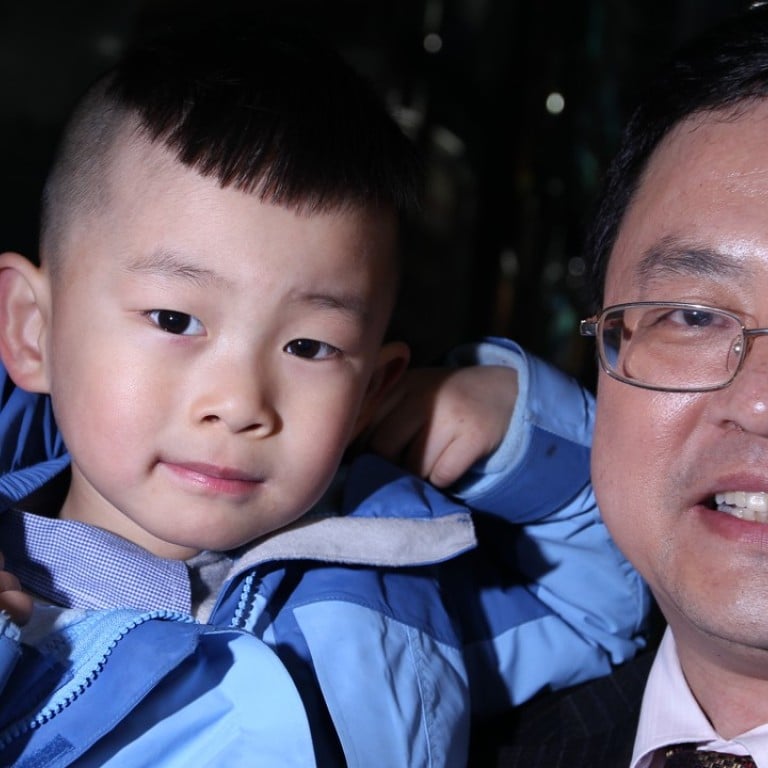
How China’s fearsome Tiger Dads found their way back into fashion
Strict fathers are winning support as society resists rising Western influence to embrace traditional Chinese parenting style
He Yide has piloted a plane on the outskirts of Beijing, climbed most of the way up Japan’s freezing Mount Fuji, marched 100km across China’s dangerous Lop Desert and sailed a dinghy single-handed.
Yide is not some extreme sports enthusiast. He’s just a nine-year-old Chinese boy whose father has been training him to face the harsh realities of a tough life since he was a toddler.
Yide’s businessman father, He Liesheng, could be described as a “tiger dad”, although he prefers to be known as an “eagle dad”.
“Once an eaglet is old enough, [its eagle parent] cruelly pushes it from the nest off the cliff face,” he said. “During its fall, the eaglet must flap its wings and learn to fly, or perish.”
The analogy is one that He has quoted to the media time and again since 2012, when the father and son first made international news after a video went viral showing a four-year-old Yide being forced to run naked in the snow in New York even as he cried and begged to be carried.
When the South China Morning Post revisited the “eagle dad” and his son ahead of Father’s Day on Sunday, Yide was busy preparing for his junior middle school entrance examinations at his home in Nanjing, Jiangsu. Most Chinese pupils take the exams when they’re 12 years old.
Aside from his physical feats, the boy also has an impressive collection of academic achievements. Under his father’s strict tutelage, Yide is already a national abacus champion, on track to getting a diploma in economic management from Nanjing University, and is spending his free time reading undergraduate-level economics textbooks. Nanjing University is one of China’s most prestigious tertiary institutions.
“My parenting technique has had a remarkable effect on Duoduo,” He told the Post, referring to his son by his nickname. “Duoduo is already reading Nanjing University’s economics textbooks, but he hasn’t lost the laughter that children his age have.”
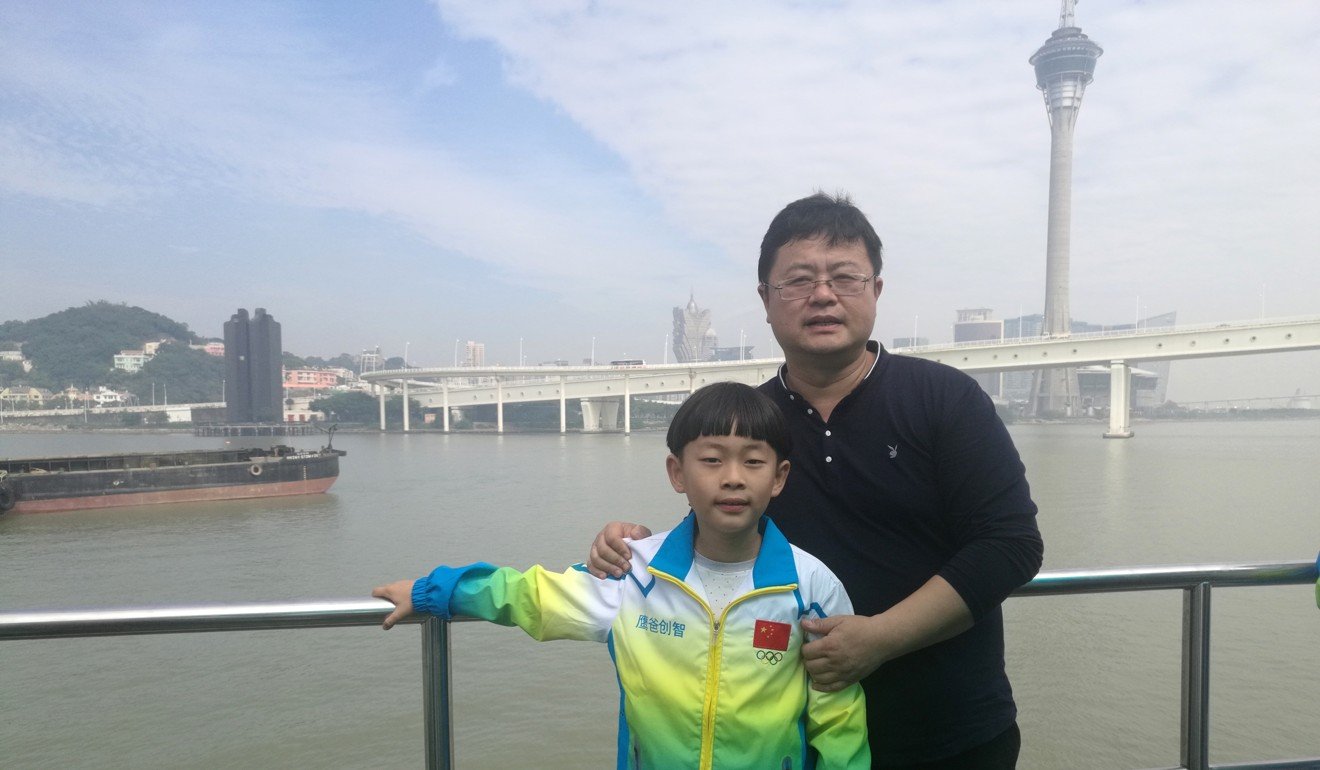
Courting controversy
He has predictably come under fire over the years for his harsh parenting techniques, which have sparked considerable controversy.
In October 2012, Japanese park rangers had to rescue He and Yide about 3,400 metres up the 3,776 metre Mount Fuji after the father took his son up the icy mountain without a guide amid severe gale warnings during the off-season for climbing, international media reported. They were ill-equipped, with no waterproof gear and little food and water, according to the reports.
He told the Post he had expected shops to be open along the route. The pair had to give up their goal of reaching the summit when a shop owner warned them of worsening weather. They were led down the mountain after having a bowl of instant noodles, he said.
Months before the Mount Fuji expedition, the father had been criticised for making his son sail a dinghy single-handed off Qingdao, Shandong. The following year, the boy, then five, set a Guinness World Record as the youngest person to pilot a plane after a 35-minute flight across Beijing Wildlife Park in an ultralight aircraft.
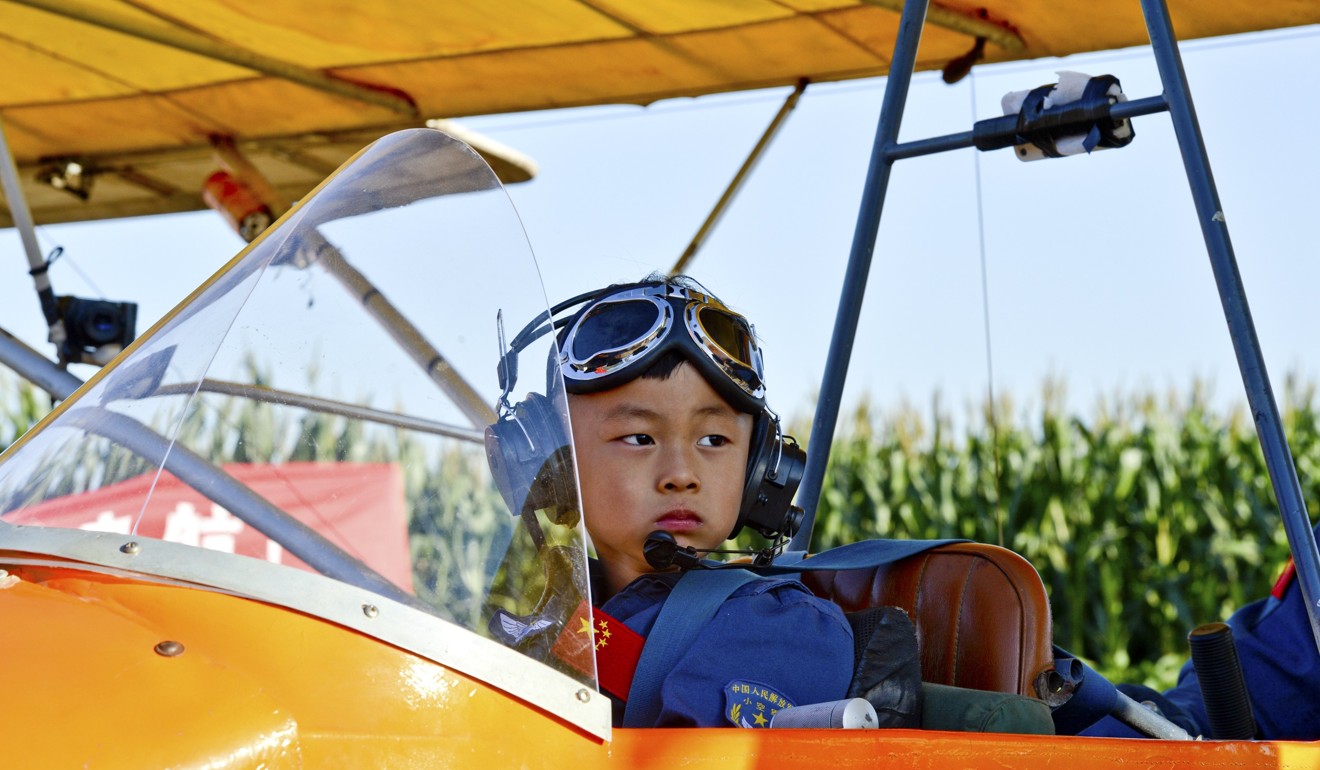
In 2014, the father and son travelled 3,000km across the harsh, arid Lop Desert, trekking 100km on foot, practising survival techniques including foraging for food and sleeping in pits they had to dig themselves. The Lop Desert, in Xinjiang, is a dried-up salt lake known as China’s “Sea of Death”. Many people have died making their way across it.
He said his tough parenting has helped strengthen Yide, who was born prematurely with a string of health problems including water on the brain that could have resulted in cerebral palsy.
These days, Yide is subjected to a strict timetable of three hours of exercise a day and a string of lessons far more advanced than those normally designed for children his age. Like other nine-year-olds, he is a Grade Three pupil at a local primary school, but he also receives home tutoring from teachers hired to prepare him for his junior middle school entrance exams.
In February, Yide also sat three tests as part of the requirements for self-taught students to obtain a Nanjing University diploma in economic management. He passed two of them but failed the third. To get the diploma, he has to pass 11 more tests, and to earn a degree, he would have to write a thesis.
Yide’s father said he wanted his son to focus only on business-related subjects because the boy’s ambition was to become a businessman. Official curriculums wasted time on too many “useless” courses, He said.
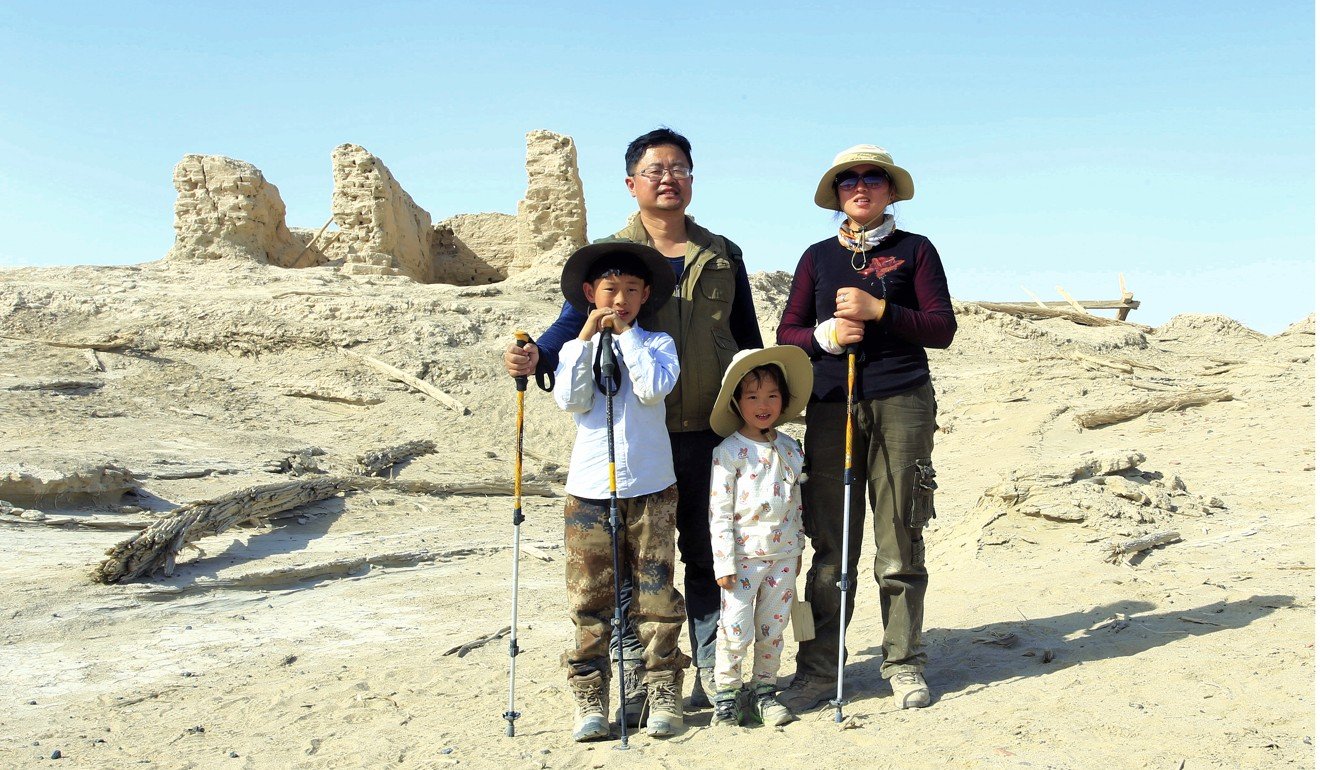
“With that specific goal in mind, Duoduo will study all the subjects that a competent businessman needs,” He said, adding that Yide would skip the gaokao, China’s university entrance examinations, and focus on earning diplomas for self-taught students instead.
“Duoduo needs to earn diplomas in at least three more majors, such as human resource management,” he said. “Getting diplomas [by taking the exams for self-taught students] is the only feasible way for Duoduo now, since they impose no age restrictions [unlike the gaokao].”
Surging support
His tough parenting techniques had produced results in other children as well, He said. In the past year, about 20 children from across the country joined Yide in a homeschooling curriculum He designed.
The curriculum is carried out at venues provided by He, with tutors teaching topics assigned by He.
“Despite all the doubts over the years, there have been more and more parents supporting my parenting method,” He said, adding that many of the parents who put their children on his homeschooling programme were seeking a different route for their young ones.
“These children have changed so much in my school,” He said. “They are no longer addicted to computer games and they don’t delay doing their homework or use obscenities any more.”
There has been a resurgence in support for the more traditional way of parenting in Chinese society, researchers say.
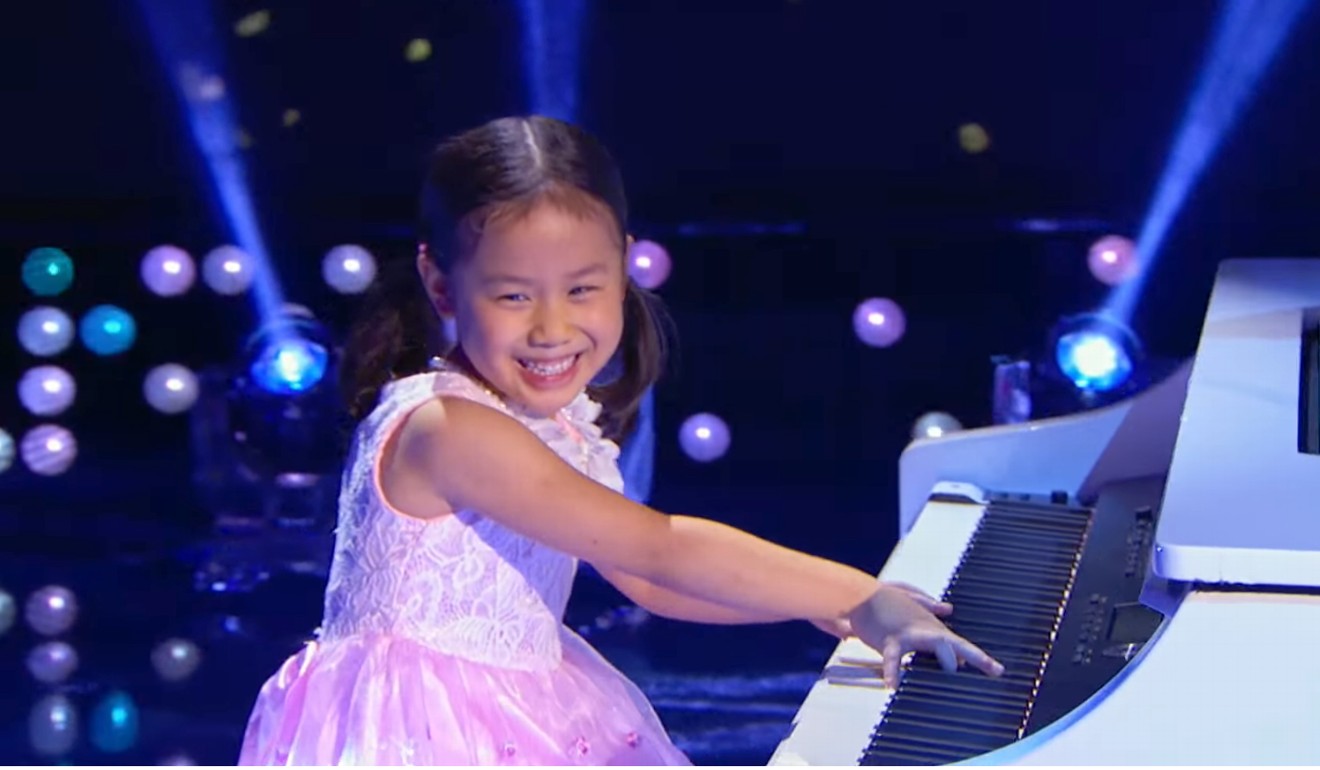
“The traditional parenting style – strict fathers and affectionate mothers – has deep roots in the Chinese way of child-rearing,” said Chen Binbin, a psychologist from Fudan University’s school of social development and public policy.
In China, gentler and warmer styles of parenting – especially by fathers – are often associated with Western culture. Chinese society has in recent years reinforced the teaching and practising of traditional Chinese culture and values as people feared that too much Western influence after China’s reform and opening-up would lead to the loss of their own culture. For example, education authorities have instructed schools to do more to inculcate traditional values, and after-school classes teaching ancient Chinese literature and moral precepts have also gained popularity.
“Especially as nationalism has been on the rise, for a variety of reasons, many people have been thinking that we should go back to the traditional way of parenting,” said Li Xuan, an assistant professor of psychology at New York University Shanghai. “The fathers, in particular, when they’re raising boys.”
That was apparent from the audience response to a recent hit Chinese reality show, Dad, Where Are We Going, which featured celebrity fathers and their young children, Li said.
“For example, when actor Lin Zhiying protected his son from danger, people criticised his parenting style, saying he should not have done that as he is raising a boy,” she said. “But when sports star Tian Liang yelled at his daughter, everyone hated him for doing so.”
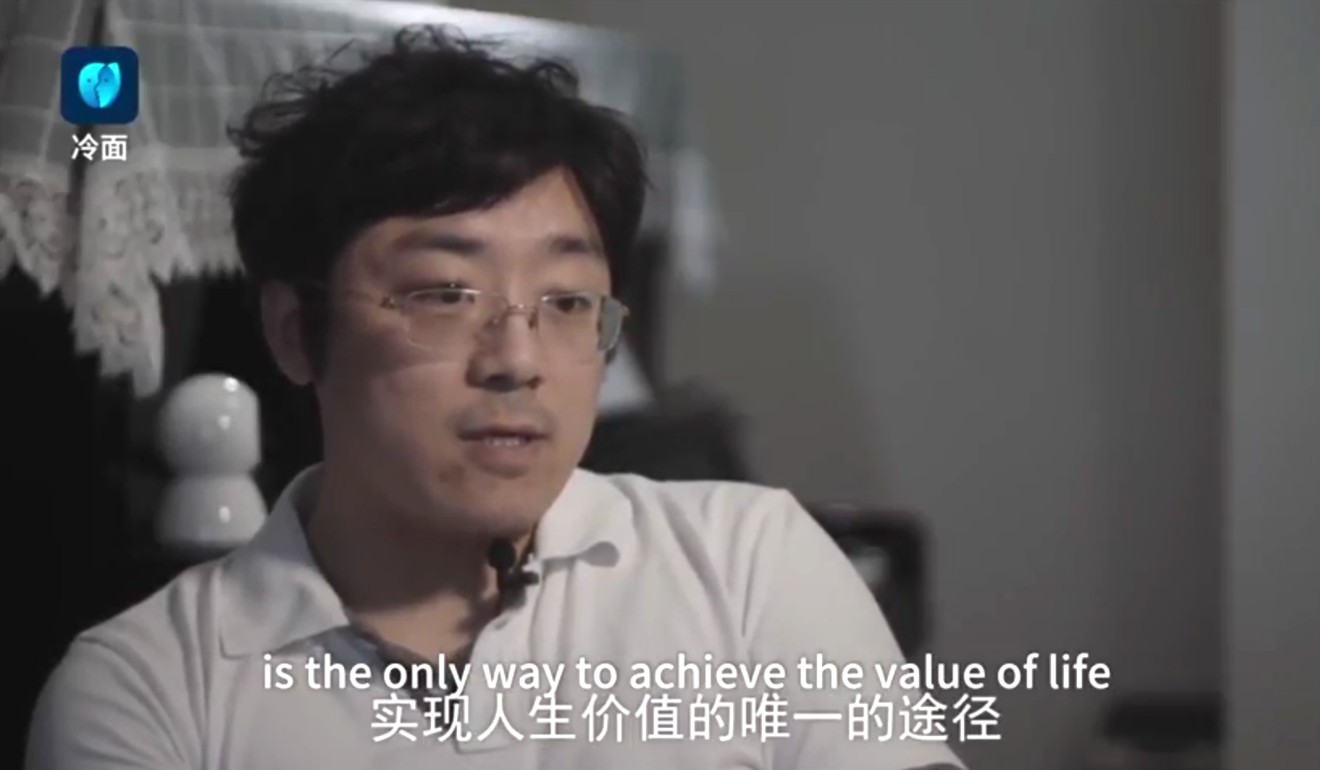
Yide’s father admits he is tougher on his son than he is on his five-year-old daughter, He Yijing, who is nicknamed Hanhan. Yijing and Yide both have to sit through several hours of home lessons a day, but He said he tended to be more lenient on the girl.
“I used to restrict Hanhan’s kindergarten time to only in the morning, but I’ve since decided to lengthen it into the afternoon because I think she should spend more time with children her age,” He said. Though her peers attend school only at the kindergarten level, Yijing is already studying Grade Three material.
Not all “tiger dads” go easy on their daughters, though. Another tough father who has surfaced in Chinese media recently is Chen Dongzhi, whose daughter is five-year-old piano prodigy Chen Anke.
In April, the little girl from Tianjin wowed audiences in the United States when she appeared on Steve Harvey’s Little Big Shots variety show, playing music from Beethoven to Bach. Videos of Anke’s colourful performance and adorable personality during the show were widely circulated online as Chinese internet users praised her for doing China proud on the world stage.
However, asked by Harvey after her performance how she came to pick up music, Anke revealed that she started learning the piano two years ago because her father wanted her to.
“I practise every day – there’s never a day I don’t practise,” she told Harvey on the show. Her father has also previously told Chinese media that Anke has four hours of piano practice a day and that he plans to train her to become China’s “second Lang Lang”.
Lang Lang is a renowned Chinese concert pianist who has performed in orchestras across Europe, the US and Asia. In a 2014 interview with The Telegraph, Lang attributed his success to his own “tiger dad”, who forced him to practise up to 10 hours a day to qualify for admission to a top music school in Beijing.
Pursuing perfection
After Anke’s US performance, Chinese media quoted Chen as saying that in his childhood, he yearned to play the piano but never had the chance to learn given his family’s tight financial situation.
“I didn’t have the chance to experience the most impactful and beautiful part of music, [so I thought at that time that] when I have a child in future, I would definitely let her learn the piano, let her reach the top, learning to the very best of her ability,” Chen said in an interview with Pear Video.
“Many parents let their children learn a little bit of everything … but I just feel that they don’t go in-depth into any one thing and I feel that they have no direction.”
Chen admitted “it’s possible that Anke might hate me in the future”, but said at another point in the interview that “to me, music is something that really matches my goals, so I hope that she will pursue this her entire life.”
While many Chinese internet users expressed sympathy for Anke over her long practice hours, several also lauded Chen’s parenting style.
“How many fathers would dare to nurture their children this way, spending so much time and money accompanying her and growing up with her,” one Weibo microblog user wrote. “Those who say Anke’s father is selfish don’t understand his love for her. Being able to play throughout childhood won’t necessarily lead to a beautiful future, but this child will never feel lost about her future.”
Despite renewed support for “tiger dads” in China, Fudan University psychologist Chen said traditional Chinese parenting methods had mellowed over time.
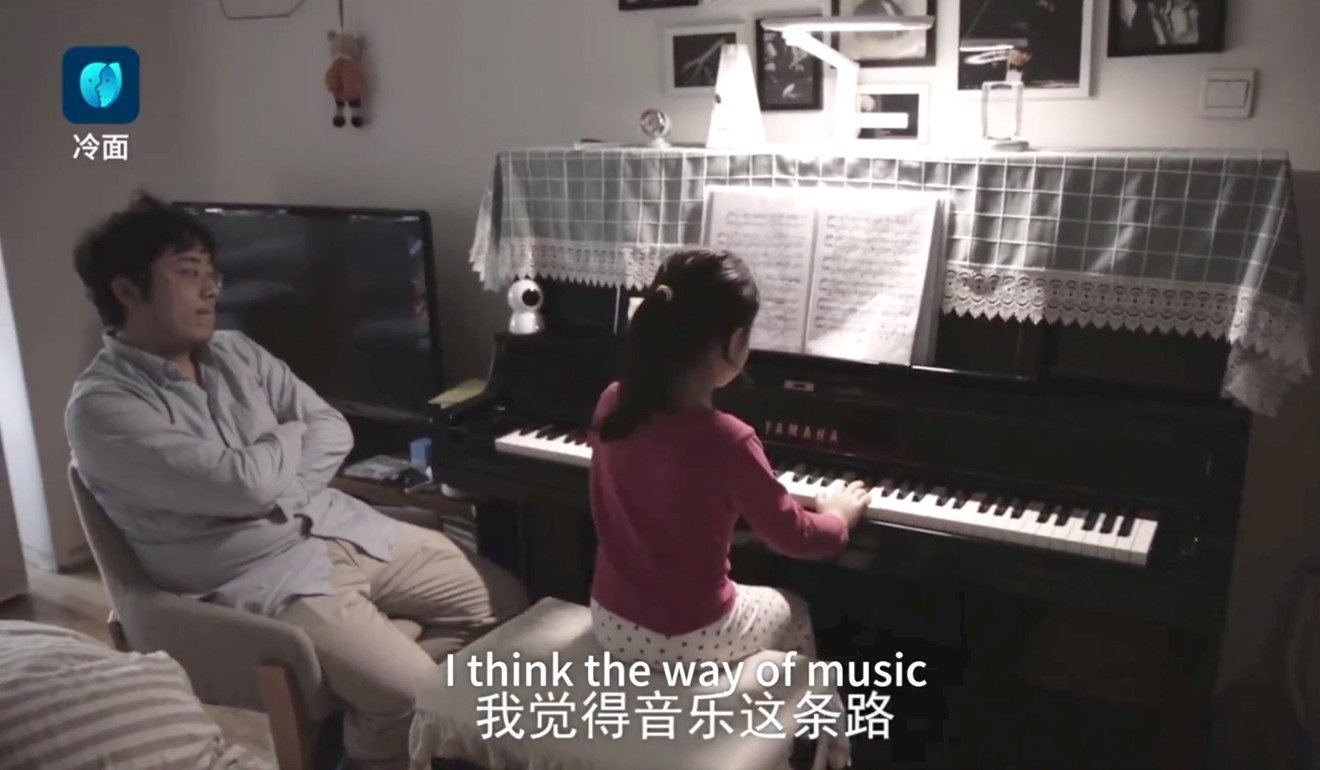
“After China’s reform and opening up in the late 1970s and the introduction of the one-child policy, Chinese fathers have become less harsh,” he said.“In general, modern-day Chinese fathers are now paying more attention to their children’s feelings and interests, and encouraging them towards more independent self-exploration as these fathers become more exposed to Western values.”
He Jie, an associate professor from Zhejiang University’s department of psychology and behavioural sciences, said there were pros and cons to any parenting style, whether one was a “tiger dad” or a “cat dad” – a father who adopts a gentler, more relaxed approach to parenting. What was important, she said, was for parents to pick their method according to their children’s personalities.
“If a child is vivacious and active, then the parents may choose to be more strict and detail-oriented,” she said. “But if one’s child is sensitive and emotional, then a tender, looser approach may be more beneficial.”
“Tiger dad” He said he believed his method suited Yide best and that he had done right by his child. Describing himself as a “responsible, creative” father, He proclaimed confidently: “I want Duoduo to be a strong person both inside and outside. And I chose the road not taken.”

